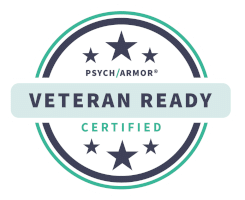Autistic individuals often prefer predictable structures and schedules. Therefore, they tend to have an ‘on-off’ quality, where they may be calm one second and frustrated the next when changes in their plans or environment occur. Family members and significant others may grow resentful over time due to misunderstanding this behavior.
Conflict within the home can be adequately handled by helping the affected individual and immediate family members understand the causes of this anger. These difficulties can also be true for those living with high-functioning autism and anger.
While understanding is vital, it is only the first step. The next step is to use this knowledge to change your approach towards ASD anger management. What’s the underlying issue behind their anger? And how can you prevent an outburst from occurring in the first place?
Individuals who live and work around someone with this disorder need to take steps to be empathetic and consistent in their behavior. This will lead to a better environment for everyone involved.
6 Common Causes of Anger in Those with Autism Spectrum Disorder
According to autism-help.org, these are six common causes of anger in those with Autism Spectrum Disorder (ASD):
1. Overwhelmed by multiple tasks or sensory stimulation
Multi-tasking has become more common in today’s on-the-move society. People expect others to be able to do more than one task at a time. However, what may seem minimal to some can be highly stressful to those with autism.
2. Behavior of others
An autistic individual may take great offense to insensitive or sarcastic comments that most may judge as light humor. Being ignored, whether on purpose or by accident, is a prevalent trigger as well.
3. Having routine and order disrupted
Many subconsciously cope with stress by following strict daily regimes. Disrupting a routine means disrupting a coping mechanism. For those struggling with high-functioning autism and anger, the organization of their room can be very important to their routine. Simply moving something around in their area could cause a massive disruption to their comfort zone.
4. Difficulties with employment and relationships
Many autistic individuals report feeling like their talents and capabilities are often overlooked and unappreciated. Employers may not sympathize with their needs. People uninformed about their condition might dismiss their attempts at friendship or communication.
5. Intolerance of imperfections in others
Both physically and mentally, a person with autism may have stressors indirectly caused by other people. Certain facial features, vocal characteristics, or sudden movements can trigger someone with autism. Allowing them to express these pet peeves may result in further understanding of their anger-related behavior.
6. Stress build-up
Everything previously listed can potentially add up to this one. Individuals who have not taken steps towards managing anger can have a hard time dealing with built-up stress. Many autistic individuals must be taught how to process their stress and emotions.
Taking the Next Step
In some instances, treatment may be the best option. The Stables Autism Program treats adults of all genders 18 years and older who have ASD and have not achieved or sustained the level of social, academic, occupational, employment, and family function desired.
We also provide individualized therapy programs, step-down residential programs, and less intensive mental health services, such as community residential homes, supportive housing, day treatment programs, and life skills training.
Learn more by calling us or filling out the online form, and an admissions specialist will be happy to discuss our treatment programs and answer any of your questions.





